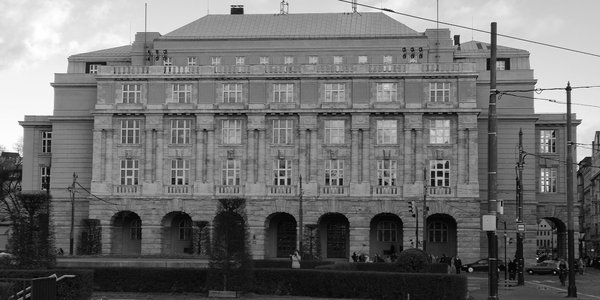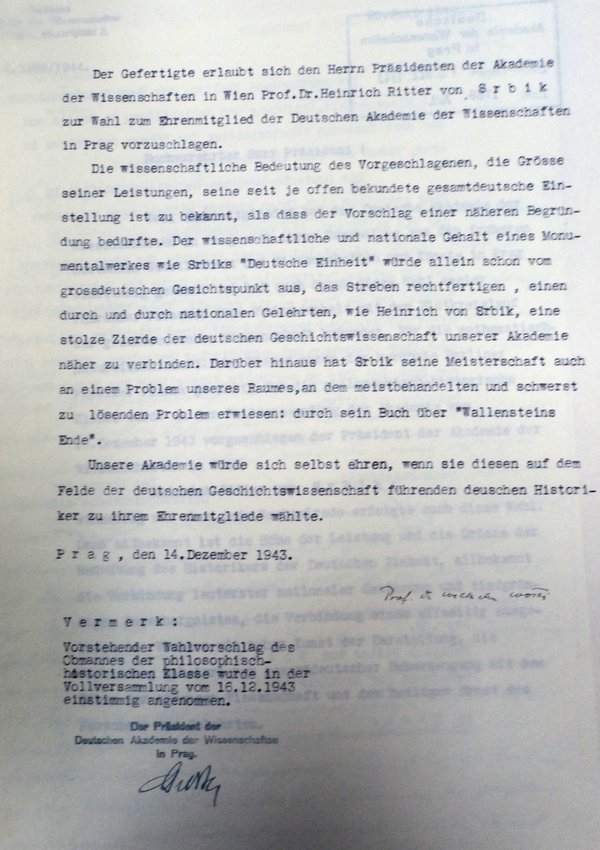
Corresponding research: The historians at the “Society for the promotion of German science, art and literature in Bohemia” 1891–1945
Project duration: October 2019 – June 2021
Funding: Bavarian State Ministry of Science and Art
Project work: René Küpper
As part of their participation in the Kompetenzverbund Historische Wissenschaften München (competence network for historical sciences Munich), Collegium Carolinum, the Historical Commission of the Bayerischen Akademie der Wissenschaften (Bavarian academy of sciences) and the Monumenta Germaniae Historica jointly direct the collaborative “Korrespondierende Wissenschaft (corresponding research) project.” As part of this initiative, selected excerpts from the scholarly correspondence of the participating institutes over their history (and pre-history) are edited using a shared digital platform.
The sub-project at the Collegium Carolinum deals with the Gesellschaft zur Förderung deutscher Wissenschaft, Kunst und Literatur in Böhmen (Society for the Promotion of German Science, Art and Literature in Bohemia). The society was founded in 1891 by German academics in Prague as the German counterpart to the Czech Česká akademie císaře Františka Josefa, which had been established a year earlier. Its transformation into the Deutsche Gesellschaft der Wissenschaften und Künste für die Tschechoslowakei (in 1924) and then into the Deutsche Akademie der Wissenschaften in Prag (in 1941) reflect the social and political ruptures of the first half of the 20th century and the need to adjust to the various different systems of state imposed during those periods. Former members of the Deutsche Akademie were prominent during the post-war period in the early history of both the Historische Kommission der Sudetenländer and Collegium Carolinum. But just how closely with or far from the state did the historians of the society, including the Prague-based professors Hans Hirsch, Theodor Mayer, Josef Pfitzner, Samuel Steinherz and Wilhelm Wostry, conduct themselves within the field of tension between activism and irredentism in the Czechoslovak Republic? And how did they act under National Socialist domination? What relationships connected them with Czech, Austrian and German colleagues? How did scholarly communication and knowledge production change in response to changes in political conditions?
The academic and political relationships among these scholars are subjected to an analysis of historical networks. In this way, the project combines digital correspondence with research into historical networks, promising to yield exciting insights into the relationship between academic research and politics.

